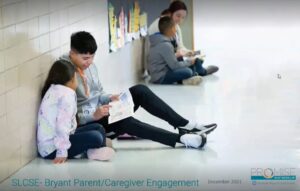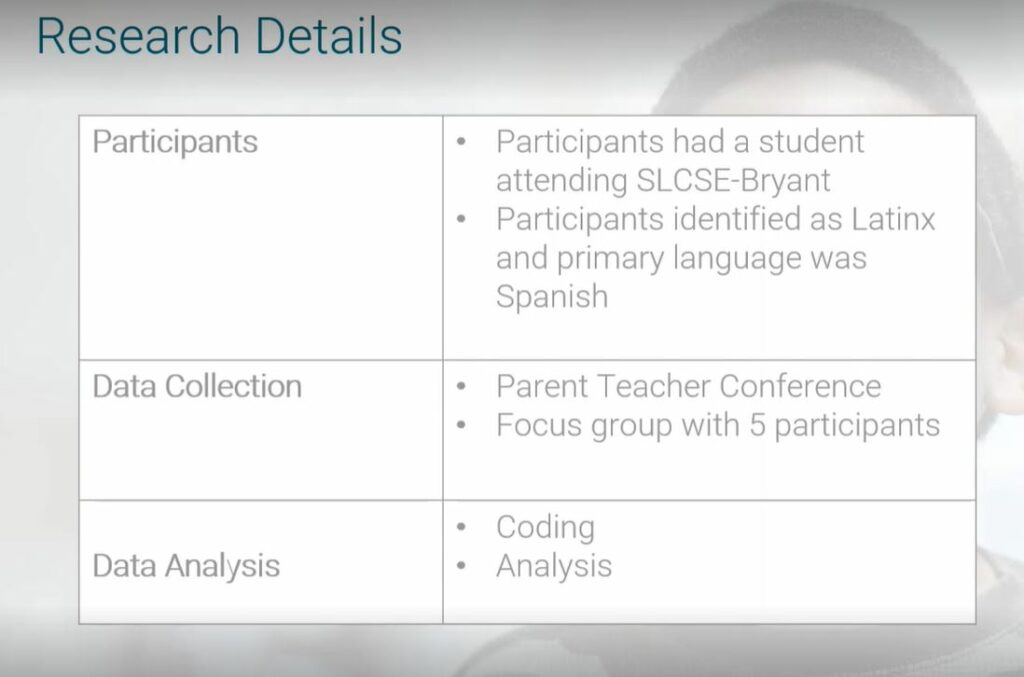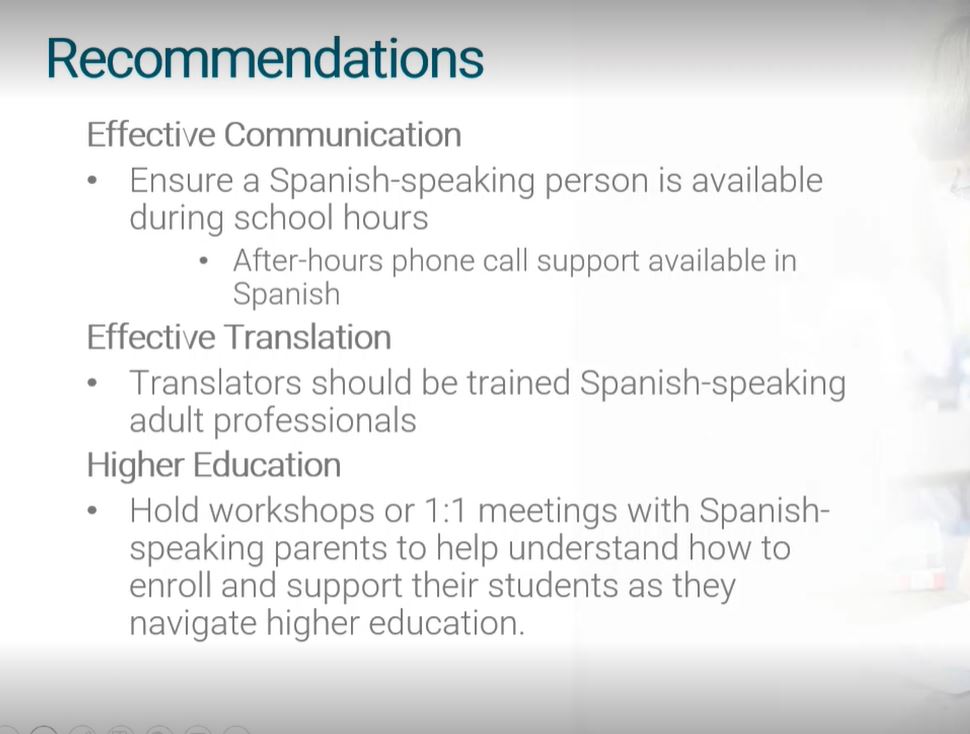The Grassroots Leadership Team at United Way of Salt Lake works to engage community members in conversations about their experiences to create a system where the experiences of those most impacted by issues are guiding the solutions. They do this by first completing community-based research projects to illuminate the stories of those in our communities, then developing actions within the community and institutions to make lasting change. During her fellowship with the Grassroots Leadership team, Cristina Velasquez organized a project focused on helping Spanish-speaking parents engage more easily with the schools their children are attending.

I met with the principals of the SLCSE network schools, which have a population of Latinx students, at the beginning of my fellowship. In our meeting, they shared that they had noticed a disconnect between the schools and Latinx parents which impacted their school involvement. We saw a need to identify barriers faced by Latinx parents when trying to be involved at SLCSE Bryant, so I began developing this project with the support of the school.
My central research question for this project was “How do Latinx parents want to be involved at SLCSE-Bryant?” I created a sub question to learn “What can SLCSE-Bryant do to support Latinx parent involvement?” I decided on these research questions because, in order to discuss how the school can address these barriers, it was important for me to identify how Latinx parents wanted to be involved with the school and what barriers they face. I decided early in the research phase that I would focus only on parents with students currently attending SLCSE-Bryant; this was done intentionally to understand the current climate. In addition, I focused solely on Spanish speaking Latinx parents; I did this because navigating the education system can be more challenging for Spanish-speaking parents due to cultural differences and language barriers.
To connect with parents and conduct outreach for this project, Flor (another fellow) and I attended parent teacher conferences at SLCSE-Bryant and started recruiting Spanish-speaking parents
My main method of data collection was a focus group that included five Spanish-speaking parents. This focus group shed a light on the main barriers Spanish-speaking parents face when trying to be involved with the school. My findings were that parents had trouble with communication, time, and translation. Many parents opened up and shared that their main barrier for participation was the language barrier; a lack of quality translation made parents feel disengaged. One parent shared that for her it was very difficult to go into the office for everyday things like excusing an absence when a Spanish-speaking office administrator was not there to act as a translator. The parents stated that because most of the teachers do not speak Spanish, there was no other viable option for translation when the Spanish-speaking administrator was not there. This led to students having to translate for parents as a last resort and speaks to the need for more readily available trained adult translators.
Another parent shared a story of when her son got COVID-19. She called the school to see what the next steps were for his return to school. Unfortunately, no Spanish speakers were available, so the steps were unclear; the parent ended up having to pick her child up from school because of miscommunication. This example is important because it brings up another barrier Spanish-speaking parents face: time. The parents stated that they work more than one job, have other children, and struggle to be involved due to challenges with available time. This example of a parent having to leave work to pick her child up from school shows how important effective translation and communication is because it highlights how miscommunication can further burden parents who already have a limited amount of time.

A finding that was very unexpected, but exciting, was the desire to know more about higher education. Parents wanted to know more about the application and admission processes for colleges and universities and what resources, like scholarships, are available to support their kids. I was not expecting this finding because these were parents of seventh and eighth graders. However, during the focus group, parents shared how much they value education and want to know more. Parents started asking questions about getting scholarships and different higher education resources. One parent even shared how they were meeting with their child’s counselor soon to discuss the transition from middle school to high school and to receive guidance on next steps.

The biggest take away I got from my research project is that Spanish-speaking parents care. There was never a doubt in my mind that they cared about their children’s education, and my findings cemented that belief. Spanish-speaking parents care and want to be involved, but for that to happen the barriers they face must be recognized and addressed. I feel so incredibly lucky to have met these wonderful parents and I am hopeful that we can acknowledge these barriers and work to make collective change.
By Cristina Velasquez, Grassroots Leadership Organizer, United Way of Salt Lake


